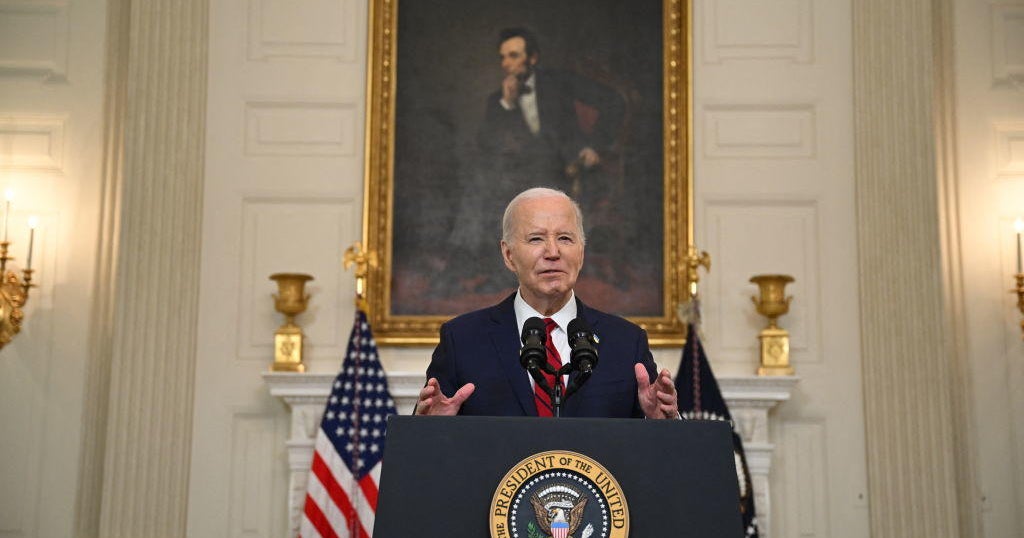Obama denies Keystone XL pipeline permit
It's official: The Obama administration is denying TransCanada's application to build the controversial Keystone XL Pipeline, a proposed $7 billion, 1,700 mile underground oil pipeline linking the tar sands fields of northern Alberta to oil refineries on the Texas Gulf Coast.
"Today, the Department of State recommended to President Obama that the presidential permit for the proposed Keystone XL Pipeline be denied and, that at this time, the TransCanada Keystone XL Pipeline be determined not to serve the national interest," the State Department said in a statement. "The President concurred with the Department's recommendation, which was predicated on the fact that the Department does not have sufficient time to obtain the information necessary to assess whether the project, in its current state, is in the national interest."
As part of deal last December extending the payroll tax cut for two months, Congress imposed a Feb. 21 decision on President Obama to issue or reject the permit. The administration has long maintained that the timeline pushed by Congressional Republicans did not allow enough time for a final decision, citing the need for an assessment of alternative routes for the pipeline in the sensitive Sand Hills area of Nebraska.
In November, the State Department said it needed additional time for such an assessment, vowing to make a decision by the first quarter of 2013 - after the 2012 presidential election. That timeline would have kept the pipeline decision, which pitted environmentalists against unions and the business community, from being an issue in an election year.
But Republicans were determined to get Mr. Obama on the record about the pipeline, which they say will create tens of thousands of jobs -- though their jobs claims have been disputed. GOP presidential hopefuls lashed out at the White House Wednesday over the decision, with frontrunner Mitt Romney saying, "President Obama's decision to reject the Keystone XL crude oil pipeline is as shocking as it is revealing."
"It shows a President who once again has put politics ahead of sound policy," said the former Massachusetts governor. "If Americans want to understand why unemployment in the United States has been stuck above 8 percent for the longest stretch since the Great Depression, decisions like this one are the place to begin."
House Speaker John Boehner said the president "is destroying tens of thousands of American jobs and shipping American energy security to the Chinese," adding, "the president is selling out American jobs for politics."
In a statement, President Obama said the decision was a result of "the rushed and arbitrary deadline insisted on by Congressional Republicans," saying it "prevented a full assessment of the pipeline's impact, especially the health and safety of the American people, as well as our environment."
He said the decision "is not a judgment on the merits of the pipeline, but the arbitrary nature of a deadline that prevented the State Department from gathering the information necessary to approve the project and protect the American people," adding that the administration plans to "look for new ways to partner with the oil and gas industry to increase our energy security."
TransCanada could potentially reapply for a permit with a proposal that includes an alternate route for the pipeline through Nebraska. The review process for the current pipeline has been going on since 2008.
"Denial of the permit application does not preclude any subsequent permit application or applications for similar projects," the State Department said in its annnouncement.
Backers of Keystone XL say it will increase America's domestic oil production with the help of a friendly ally and create tens of thousands of jobs in the process. Organized labor has teamed up with the oil industry to back the pipeline, and both have been pressuring the Obama administration for approval.
Critics of the pipeline say it will have a hugely negative impact on the environment and potentially put large portions of the U.S. water supply at risk. They also say it will not lower oil prices because the international market will simply adjust supply to account for increased production.
The pipeline would carry a tar-like form of crude oil called "diluted bitumen" across a wide swath of the country, through farms and wilderness, with spills possible in sensitive areas. Critics note that turning tar sand into oil is far more energy intensive than refining conventional oil and point out that the process has already resulted in the creation of more than 60 miles of toxic holding ponds that kill birds and pollute waterways.



